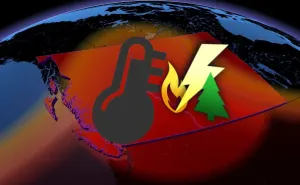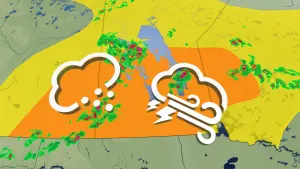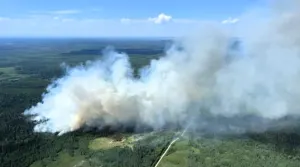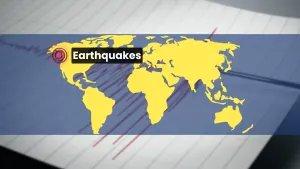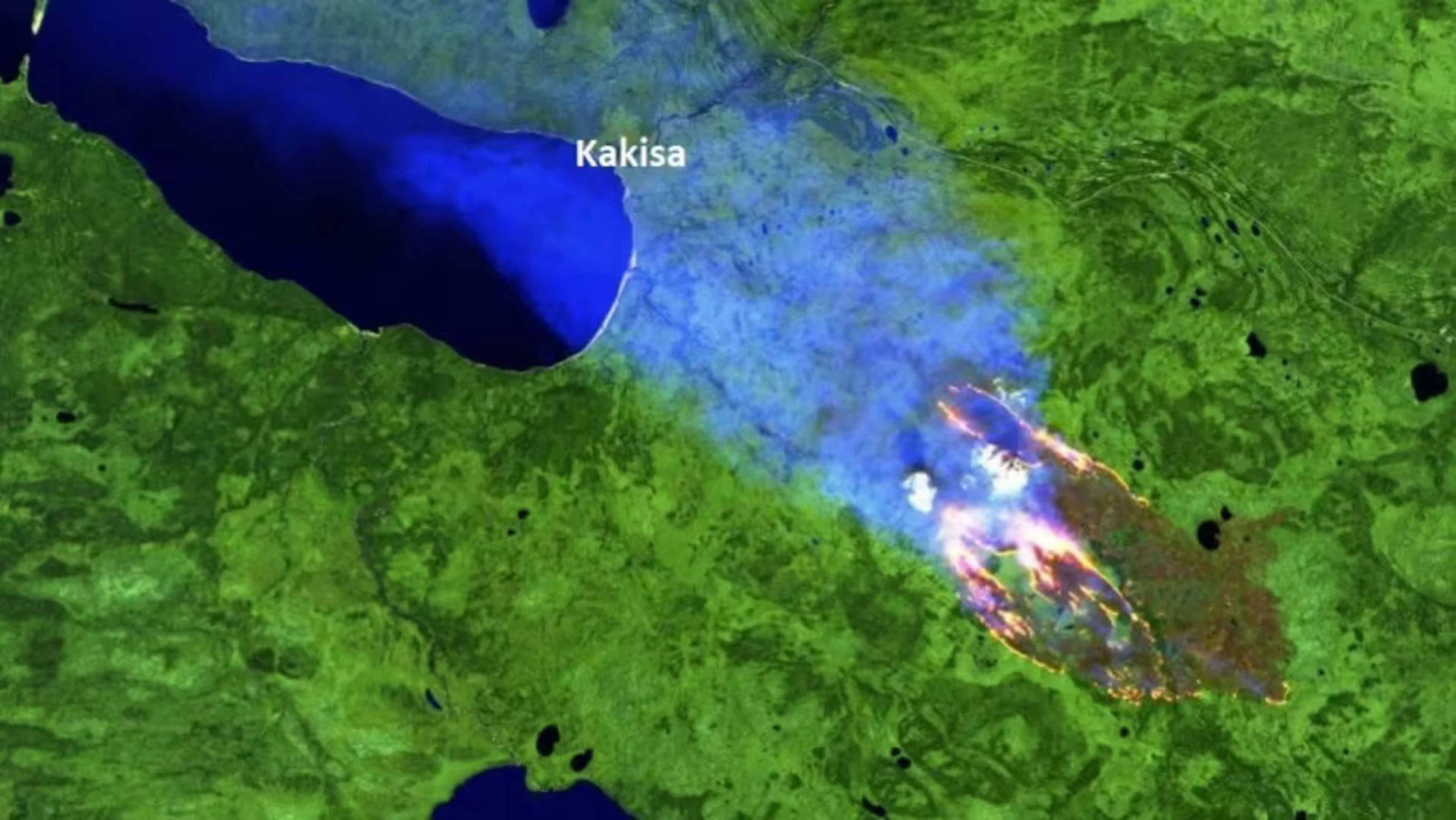
Extreme conditions force crews to pull back from wildfire near Kakisa, N.W.T.
Visit The Weather Network's wildfire hub to keep up with the latest on the active wildfire season across Canada.
Strong winds caused a wildfire to rush 18 kilometres toward Kakisa, N.W.T., on Tuesday.
Late that evening, the community issued an evacuation alert to residents.
"This fire did overwhelm our firefighting response," said Mike Westwick, wildfire information officer with the territorial government.
"Crews were forced to pull back from the fire for safety reasons.… When a fire is burning that hot, the first job at the end of the day is to get folks home safe."
Westwick said tankers continued to attack the fire into the night on Tuesday to slow the spread toward Kakisa.
The fire has grown to about 5,100 hectares in size and is burning about 16 kilometres southeast of Kakisa and 12 kilometres from the highway.
Westwick said crews would be reassessing Wednesday how best to mitigate the risk of the fire.
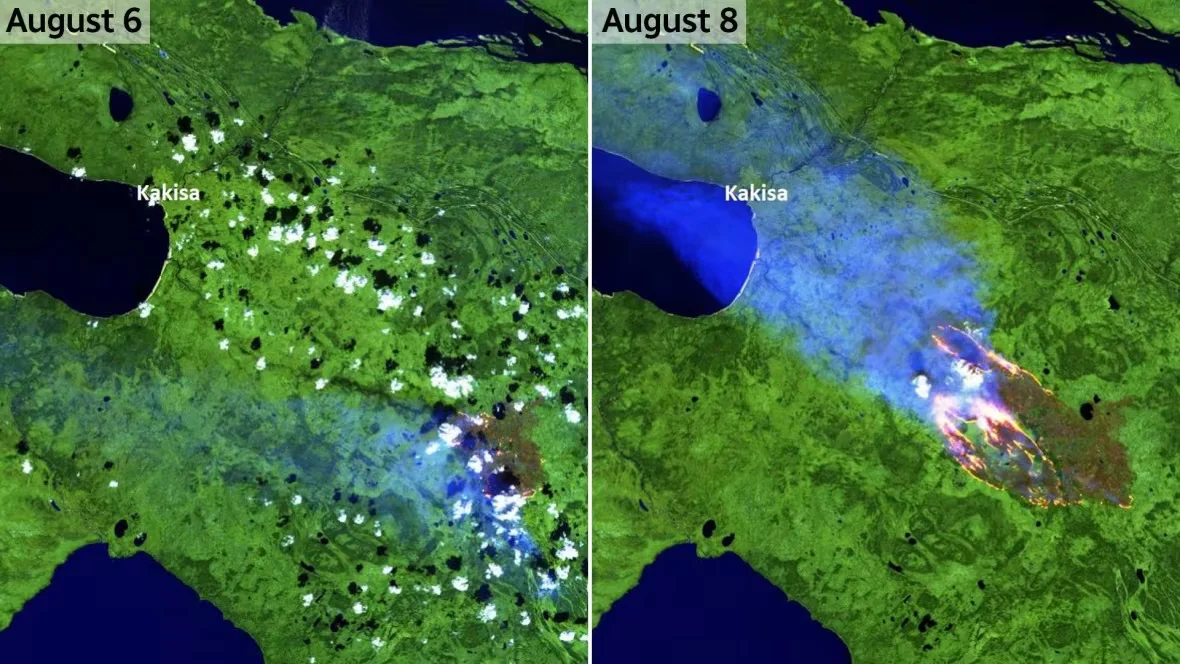
A satellite image using short-wave infrared shows the fire (brown area) near Kakisa, N.W.T., on Aug. 6. (left), and its substantial growth toward Kakisa on Aug. 8 (right). (Sentinel-2 Satellite/The European Space Agency)
SEE ALSO: Canada’s historic wildfire season only halfway done: A checkpoint
"Something else to note is that the fire has burned into previously burned areas from 2014, which is highly unusual," he said. "Really just a sign of the extreme conditions that we're seeing and the drought being faced in that area which is causing fire to burn hotter, burn deeper and be more difficult to take out."
He also commended Kakisa's leadership.
"Make no mistake, this is a pretty serious situation," he said. "We applaud the community government of Kakisa for taking leadership and getting their folks ready to leave on short notice."
'We're at the mercy of mother nature'
"I'm really worried because it's been a very dry summer," said Margaret Leishman, an elder in the community.
She said that after the evacuation alert, she packed her car with everything from important documents, to her sewing projects, to old family pictures.
"I'm 80 years old, so I have a lot of experience how to prepare for things," she said.
The smoke in the community reminds Leishman of the 2014 wildfire season when most residents left the community.
This time, she said, there was better communication both from fire officials and community leaders.
"That's how it's supposed to be so that you're not in a panic," she said.
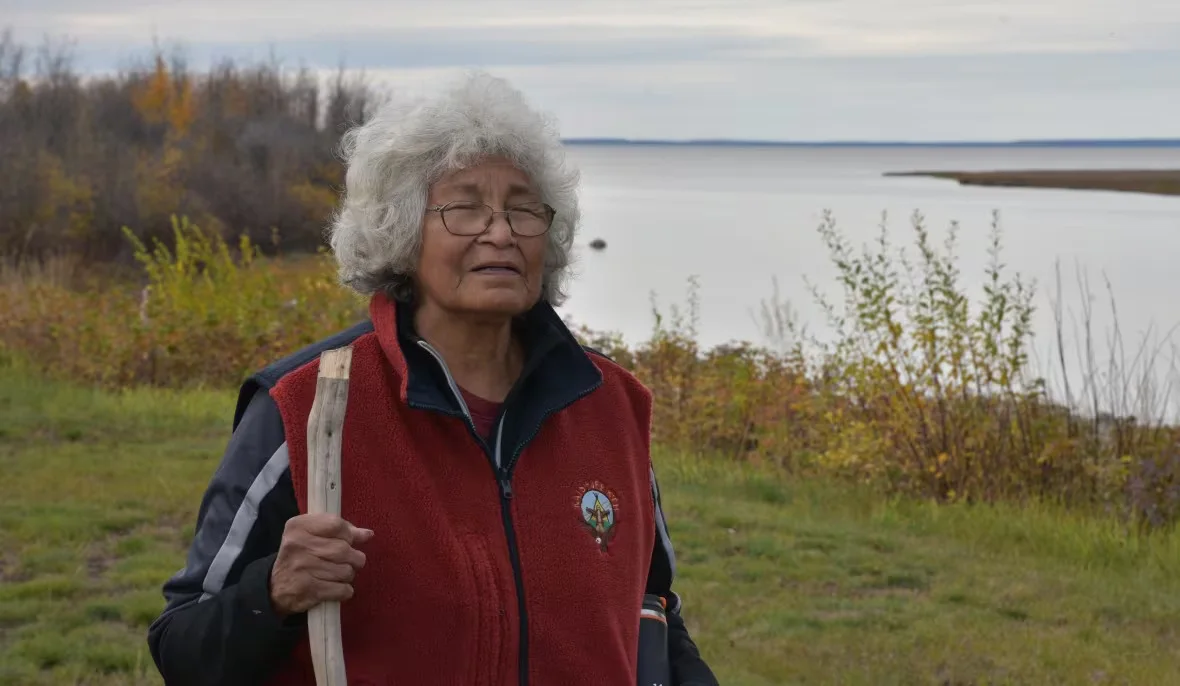
Elder Margaret Leishman on the shores of the Mackenzie River in Kakisa, N.W.T., in 2019. (Mark Hadlari/CBC)
READ MORE: Canada’s hot, fiery summer generating historic smoke emissions
Chief Lloyd Chicot echoed Leishman, saying the evacuation in 2014 was "a little disorganized."
He added residents are "not wanting to go through the process again," but they would to ensure everyone's safety.
"When you lived here all your life and you've grown up here, you're invested a lot of things into your home and your yard and stuff like that," said Chicot. "I think there's a lot of fear in some of the community members that they don't want to leave."
Chicot said since 2014, the community has worked to reduce fire fuel around Kakisa, "but we don't currently have the equipment to fight down a major wildfire ... so we're at the mercy of mother nature out here."
Leishman said it was dangerous to be on the land in the current hot, dry conditions.
"I'm a traditional Dene person and my way of life is harvesting on the land," she said. "We can't do that anymore, so I have to adapt to different ways."
She added that she was grateful to the fire crews working to keep her community safe.
Thumbnail courtesy of Sentinel-2 Satellite/The European Space Agency
This article was originally written by Francis Tessier-Burns for CBC News.






